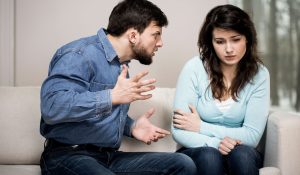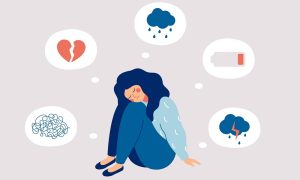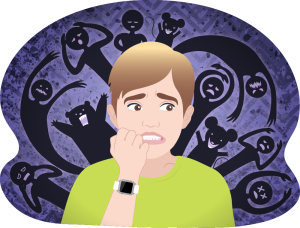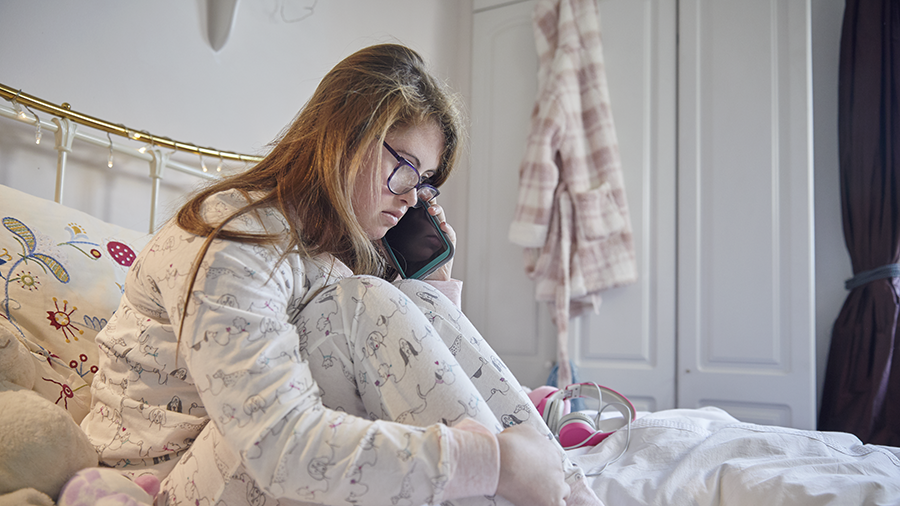In the United States, there are more than 5.4 million people who have been a victim of hoovered emotional abuse by a partner or family member in their lifetime. The number of people who like to use technology and spend less time together will grow. This is because technology is becoming more and more integrated into people’s lives and we don’t have as much free time to spend with each other. If you are suffering from emotional abuse, it is hard to not get sick. You might feel like nothing will change. You might even feel like there is no point. If you need help, don’t be afraid to ask for it!
Contents
What Is Emotional Abuse?

Emotional abuse is a type of abuse that is often overlooked. This is because it doesn’t leave any physical marks like bruises or scars. Emotional abuse can be just as damaging, however, as physical abuse. Emotional abuse includes behaviors such as verbal threats, humiliation, intimidation, and isolation.
Hoovered Emotional Abuse

It is hard to imagine that the person you love and trust could be hurting you in this way. It is possible that people might get angry when you tell them about emotional abuse. They might not be angry because they will not see any physical wounds on you. There may never have been an instance of physical violence during your time together. That doesn’t make you less of a victim if they do not touch you. They can still hurt you without touching you. When we think about people who have been abused by someone close to them, we usually picture a person being abused for a long time. The person might get beaten all the time and finally, stop taking it and leave. Sometimes, however, abuse is not so easily recognized.
Signs Of Hoovered Emotional Abuse

- You feel like you are constantly walking on eggshells: You never know what might set your partner off.
- They always need to be in control: They will want to know where you are at all times and might get angry if you don’t answer their calls or texts right away.
- Your partner is excessively possessive: They may not like you talking to other people, especially members of the opposite sex.
- Their moods change rapidly and without warning: One minute they might be loving and sweet, and the next they could be screaming at you for no reason.
- You feel like you are constantly being blamed for everything that goes wrong: Your partner will never take any responsibility for their own actions and will always find a way to make it seem like it’s your fault.
- Also, you are always anxious and stressed: This is because you never know what mood your partner will be in, and you are always worried about what they might do or say to you.
- You are always criticized and put down: Your partner will constantly find ways to make you feel bad about yourself, even if they claim that they don’t mean it. They might tell you that things would be better for both of you.
- Your feelings do not matter: You have told them what bothers you or hurts you but nothing changes because their needs come first every time.
Effects Of Hoovered Emotional Abuse
There are many physical and mental health problems that can result from hoovered emotional abuse. These include:
Post Traumatic Stress Disorder (PTSD)

Post-traumatic stress disorder is a condition that you get after seeing something bad happen. This is called PTSD. It can cause many problems and you need to see a doctor about it. People might not know they have PTSD right away. It might be a few months later on before they notice that something is wrong. A person can have bad feelings after a bad event. The person might not feel safe and might have nightmares about the event. People might avoid places that make them remember the bad thing. They can do this by staying away from places where they felt safe before because it makes them think about the bad thing too much. They might feel uncomfortable or jumpy, or not be able to sleep or concentrate well.
Depression

This is a disorder that causes people to feel sad, empty, worthless, and hopeless. It can happen for weeks or months. Depression is when you don’t feel good. It can happen after something bad happens. Some symptoms are not being able to sleep, feeling tired, or losing interest in things you used to enjoy. These are all signs of depression.
Anxiety Disorders

These are a group of mental illnesses that cause excessive fearfulness and worry. Symptoms can include muscle tension headaches, chest pain, shortness of breath, dizziness, nausea, and diarrhea. Many people with anxiety disorders also suffer from depression.
Bipolar Disorder

This is a mental illness that causes extreme mood swings between feeling really high (mania) and feeling really low (depression). During a manic phase, people might feel very happy or energetic and be unable to sleep. They may take on many new projects or spend lots of money. During a depressive phase, people might feel sad and hopeless. They might have no energy or be interested in things they used to enjoy. And they have trouble concentrating.
Eating Disorders

These are serious illnesses that can cause people to obsess about their weight and body size. People with eating disorders often have an unhealthy relationship with food. There are three main types of eating disorders: anorexia nervosa, bulimia nervosa, and binge-eating disorder. All three can be very dangerous and lead to serious health problems.
Physical Health Problems
People who are victims of hoovered emotional abuse often suffer from a wide range of physical health problems. An allergy can make you feel bad. You might have a headache, back pain, stomach problems, and more. There is also the chance that it can lead to death.
If someone is in a relationship with you and they do things that make them feel bad, like yelling at them or telling them they are bad, then get help. There are many resources available for both victims and perpetrators of domestic violence.
How To Overcome Hoovered Emotional Abuse
If you are a victim of hoovered emotional abuse, there are several things that you can do to help yourself.
First, seek professional help. This is an excellent step in healing the wounds inflicted by your abuser. You can also find support from friends and family. You can find support groups for victims of domestic violence online.
It is also important to build self-esteem and a positive self-image. This can be done through affirmations, journaling, and creative expression. You can tell yourself positive things about yourself or write them down. You can also express your thoughts in art or other ways. It is crucial that you learn to love and accept yourself unconditionally, despite the abuse you have endured.
Finally, remember that you are not alone. There are millions of other people who have been or are currently in abusive relationships. Help yourself and others by talking about how you feel. Even if you do not want to leave the relationship now, it is good for people to know what is happening.
Therapy Options For Hoovered Emotional Abuse
Cognitive Behavioral Therapy

This type of therapy helps people to change the way they think and behave. It can be helpful for victims of hoovered emotional abuse who want to learn how to cope with their situation.
Family Therapy
Family therapy is a type of therapy that involves all members of the family. This can be useful for victims who have been isolated from their families by their abusers. Family therapy can help to repair relationships and provide support.
Group Therapy
Group therapy is a type of therapy in which people meet with a therapist and share their experiences with others who are going through similar things. It can be very beneficial for victims of hoovered emotional abuse, as it provides support and understanding.
Dialectical Behavior Therapy
Dialectical behavior therapy is a type of therapy that helps people to manage their emotions. It can be helpful for victims of hoovered emotional abuse who have difficulty managing their emotions.
Medication

If you are experiencing significant mood swings or other symptoms as a result of hoovered emotional abuse, your doctor may prescribe medication. This can help to stabilize your mood and improve your quality of life.
Eye Movement Desensitization and Reprocessing (EMDR)
EMDR is a type of therapy that helps people to process traumatic memories. It can be helpful for victims of hoovered emotional abuse who have difficulty dealing with their memories.
Individual Psychotherapy
Individual psychotherapy is a type of therapy that involves meeting with a therapist one-on-one. This can be beneficial for victims who want to explore their individual issues in more depth.
Couple’s Therapy
Couple’s therapy is a type of therapy that involves both partners. It can be helpful for victims and abusers who are willing to work on the relationship. Couple’s therapy can help to improve communication and resolve conflicts.
Play therapy for children
Play therapy is a type of therapy that involves helping children to express themselves through play. It can be useful for victims who are not ready or able to talk about their experiences yet.
Family Support

If you have been hoovered by your spouse, it may help to seek support from family members and friends. This will allow them to provide emotional support and assistance as you heal from the abuse. If they were also abused by the same person, this can be particularly beneficial for all parties involved because there is an opportunity for healing on multiple levels in one place instead of spreading out among several different people.”
There are many different types of therapy available for victims of hoovered emotional abuse. Choose the one that feels best for you and your situation. You deserve to get the help you need in order to heal from this abusive relationship.
How To Help A Victim

It may seem difficult at first if someone close has opened up to you about the emotional abuse they are going through. It is important not to minimize what they have experienced and understand that it was not their fault.
Once you know a loved one has been hoovered, be supportive of them as much as possible by listening when they need someone to hear their story or talk things out with them. Be patient while they work on themselves because healing can take time.”
“Create a list of healthy coping strategies for your loved one to use, such as calling someone on the phone when they feel stressed. Show your support by learning all you can about hoovered emotional abuse and ways that victims have coped with it in the past so you are ready to help them if needed.”
Conclusion
Emotional abuse can be subtle, but it’s still powerful. It also leaves lasting scars that may not easily fade away. Hoovered is a company with people who help heal emotional trauma. They work to help people release memories and move on. They offer both private sessions where you can talk to someone one-on-one and group therapy. Group therapy is for people who want to be around other people with the same issues as them.
A Word From Therapy Mantra
Your mental health — Your psychological, emotional, and social well-being — has an impact on every aspect of your life. Positive mental health essentially allows you to effectively deal with life’s everyday challenges.
At TherapyMantra, we have a team of therapists who provide affordable online therapy to assist you with issues such as depression, anxiety, stress, workplace Issues, addiction, relationship, OCD, LGBTQ, and PTSD. You can book a free therapy or download our free Android or iOS app.



